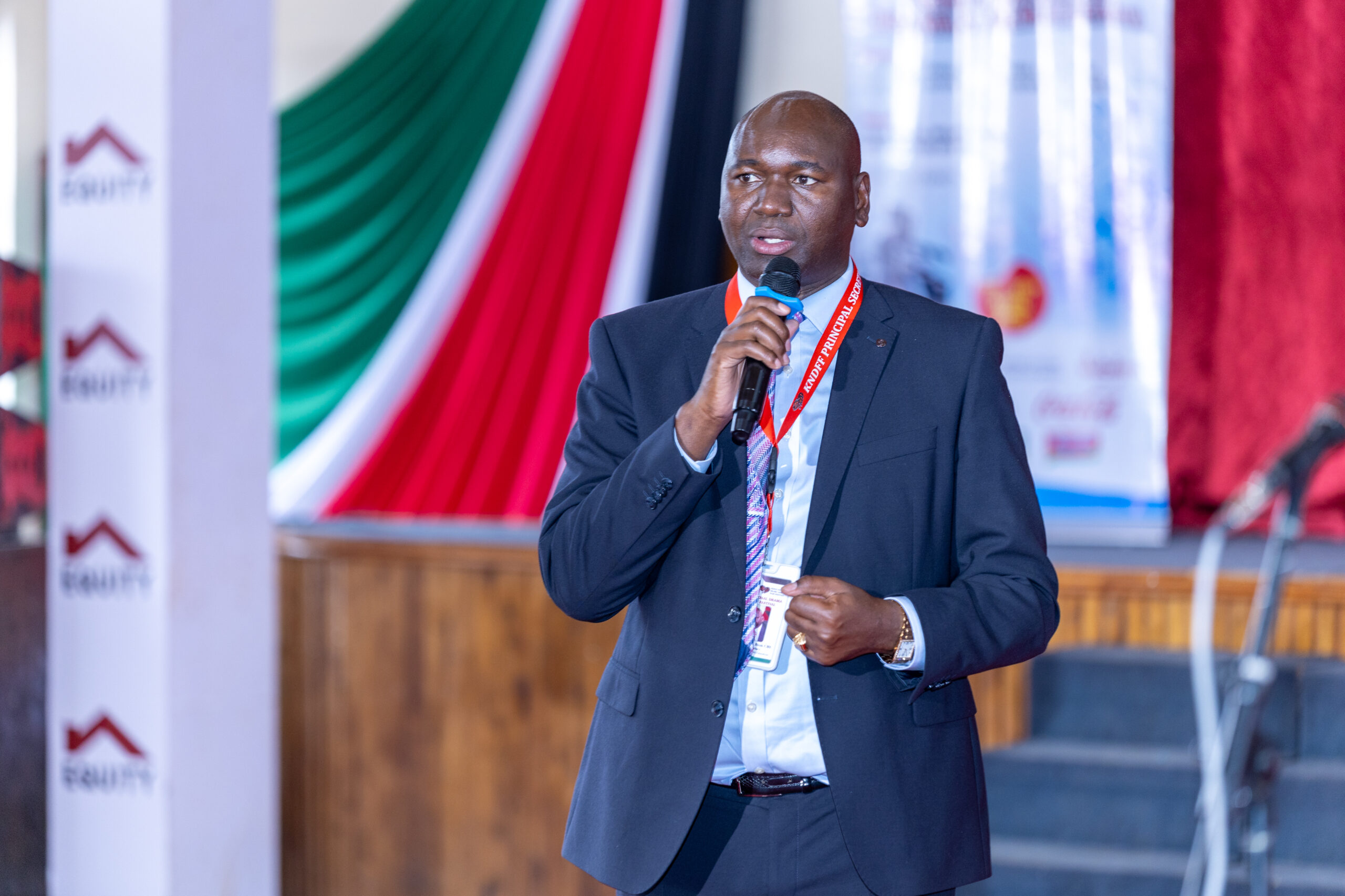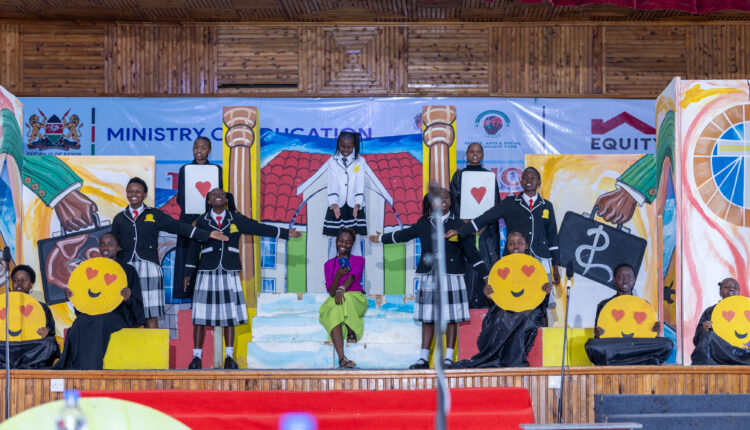
Students at the Kenya National Drama and Film Festival (KNDFF) have continued to showcase their creativity through compelling narratives that address critical social issues.


As the finals stretch into midweek, some of the plays and modern dances highlighted the importance of child online protection and safety, the dangers of misinformation and disinformation, and the critical need for financial literacy, equipping young minds with the tools to navigate an increasingly complex world.
These creative pieces align with this year’s KNDFF theme, “Liberating Technology to Nurture Talent While Inculcating Value for Social Prosperity,”
Mary Hill Girls presented staged a play titled Click Click Trapped revolving around hidden dangers lurking in the digital world, urging parents and young people to remain vigilant. Inspired by a tragic 2022 incident in Kiambu, where a 15-year-old boy lost his life after being lured into a deadly online game, the play follows Isabella, a lonely teenager who finds solace in an online community, unaware of the sinister trap that awaits her.
Wonderland Academy from Western Kenya presented Tech-Alpha, a solo dance which highlighted the merits and demerits of technology.
According to the scriptwriter, “Students should be taught to leverage technology to improve their creativity and productivity, while being made aware of the dangers that also lurk in the shadows. The story is about a girl who is obsessed with the internet to the point that it affects her studies. She is eventually taught how to make learning enjoyable.”
St Peter’s Chemaul, a primary school from Rift Valley, also presented a narrative The Swapping Game, where Mtandao (the main character) gets negatively influenced by modern technology to become an online fraudster. He later influences other learners including the narrator and things eventually turn tragic. The narrator learns the hard way and changes for the better.
Mukowe Arid Zone, a primary school from the Coast presented a solo verse Ndoto ya Almasi where a mother encourages her child to fulfill her dreams through technology. This portrays technology as an enabler of learning and a reflection of modern education.
Michael Ochieng, a teacher and director from Mazera Girls in Kwale County also leveraged technology to draft a short film, “Daraja la Wema,” which translates to “Bridge of Kindness.” The film tells the story of a girl whose Equity Group Foundation’s Wings to Fly scholarship propels to become an engineer, building vital infrastructure in her community. Daraja la Wema also subtly addresses the dangers of misinformation and disinformation, showcasing how access to accurate information and critical thinking skills can empower individuals to make informed decisions and contribute to the betterment of their communities.
“The theme around leveraging technology is timely because right kids have access to many social media apps. These kids are exposed despite having the right information. Through drama, they creatively factor what they pick from the society. We thus can’t avoid scripting around thematic issues that we can say are disruptive or controversial because they clearly depict today’s community,” Ochieng says.
Ochieng’s film is among the pieces sponsored by Equity Bank across 13 genres based on three pillars, promoting creativity and talent development, monetizing talent and fostering entrepreneurship, rewarding excellence and encouraging best performances.
While opening the National Drama and Film Festival finals in Nakuru, Education Principal Secretary, Julius Bitok reiterated plans to encourage students to monetize their content. Bitok said, “The creative economy is a multibillion-shilling industry. We want to see our youth not just performing but earning from their skills. Through the Creative Economy Support Bill and the proposed Creative Fund, we are laying the groundwork for a structured and lucrative creative sector.”


